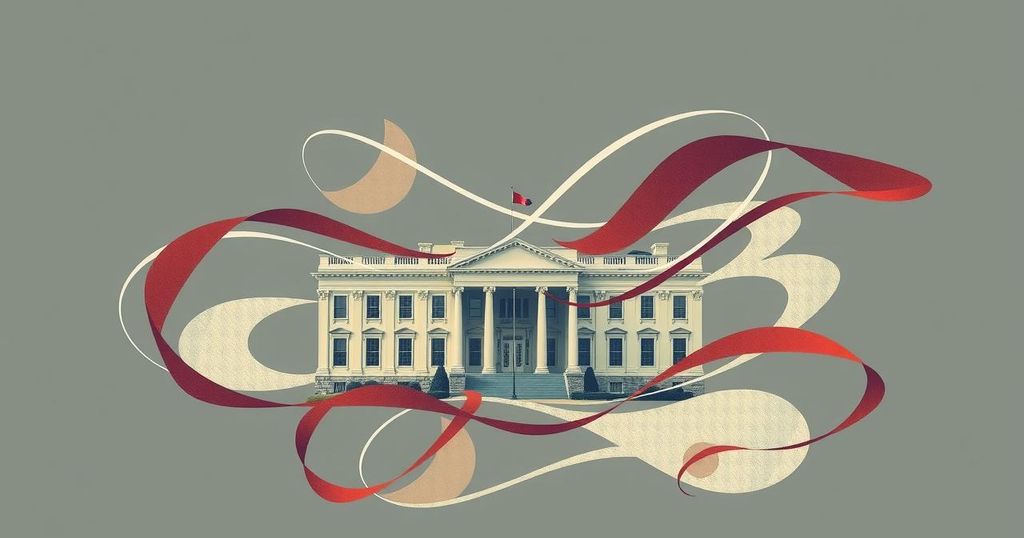Liberian President Joseph Nyuma Boakai expressed dissatisfaction with his administration’s progress during a Cabinet meeting, emphasizing the need for national development and accountability. He announced investigations into unsolved cases and outlined key priorities in economic management, infrastructure, and youth employment. Boakai warned officials eyeing the 2029 presidential elections to focus on governance. Key figures, including Vice President Jeremiah Koung, are poised to enter the race, creating a competitive landscape ahead of the elections.
In a recent Cabinet meeting, President Joseph Nyuma Boakai of Liberia expressed dissatisfaction with the progress of his administration after over a year in office. He emphasized the need for a governance strategy focused on national development, accountability, and immediate reforms. To this end, he announced comprehensive investigations into several unsolved cases of mysterious deaths and high-profile incidents, insisting that transparency and justice must prevail: “The Liberian people deserve answers. No case will be ignored. We will bring closure to these tragedies.”
President Boakai identified primary areas of focus for his administration, urging action in sectors such as economic management to eliminate inefficiencies and promote fiscal discipline. He also stressed the importance of enhancing infrastructure, especially in southeastern regions, to facilitate economic growth and improve youth employment through innovative programs. In daily governance matters, he directed that issues like airport security and corruption investigations be prioritized, alongside ensuring that public facilities like streetlights function effectively.
During the meeting, President Boakai addressed internal speculation regarding ambitions for the 2029 presidential race. He stated, “If your focus is on 2029, you may respectfully resign. My priority is serving the Liberian people—right now.” This comment signifies his commitment to immediate governance while hinting at a potential power struggle among notable officials considering a future bid for the presidency.
Among those speculated to have presidential ambitions is Vice President Jeremiah Kpan Koung. At 80 years old, President Boakai is unlikely to seek re-election, making Koung a strong candidate within the Unity Party. His substantial political experience and popularity in vote-rich Nimba County position him as a formidable contender. Other potential candidates include Foreign Minister Sarah Beysolow-Nyanti, political leader MacDella Cooper, and Cllr. Cooper Kruah, each with their notable backgrounds and political ambitions.
Emerging politicians such as Dr. Emmanuel K. Urey-Yarkpawolo and Cornelius Kruah are also in the mix. Their strategic roles within their political parties highlight the competitive landscape as the 2029 elections approach. Key figures like Edward Appleton and Finance Minister Augustine Ngafuan are noteworthy candidates who have already begun laying the groundwork for their respective 2029 campaigns. As internal pressures mount, the effectiveness and loyalty of President Boakai’s administration will be critical in navigating these ambitions.
While President Boakai urges his officials to focus on governance, it remains to be seen whether they will heed his warning or continue their pursuit of political power. The economic challenges, public scrutiny, and reduced U.S. aid present added pressure for Boakai’s administration to deliver tangible outcomes. His call for urgency encapsulates Liberia’s political landscape in a critical period leading to the next presidential election.
President Boakai’s call for accountability and action among his administration underscores the urgent need for reform amidst growing political ambitions among his officials. His insistence on prioritizing governance over political aspirations reflects the challenges Liberia faces today. As speculated presidential candidates prepare for a potential 2029 run, the effectiveness of Boakai’s administration will be crucial in delivering results that satisfy the public’s demands and address pressing national issues.
Original Source: frontpageafricaonline.com




